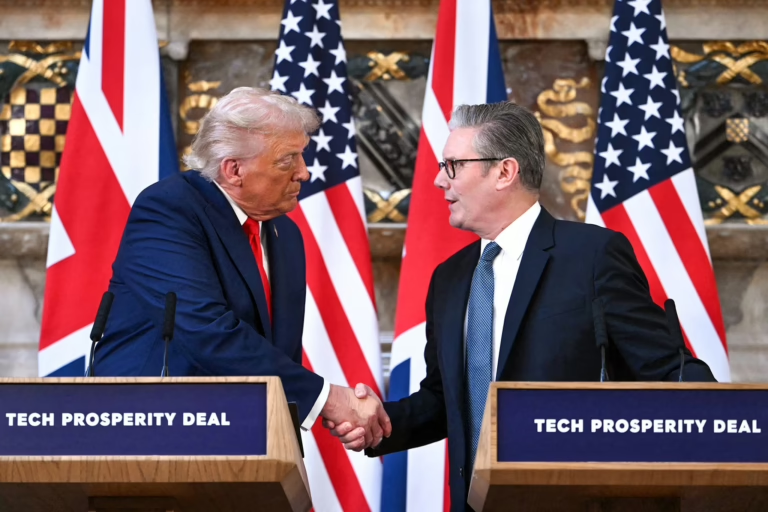During his two-day state visit, US President Donald Trump called on the UK government to deploy military forces to tackle the ongoing crisis of small boat crossings in the English Channel, emphasizing that uncontrolled migration is “eroding nations from within.”
At a press briefing held at Prime Minister Keir Starmer’s Chequers residence on the final day of his visit, Trump stressed the urgency of taking decisive action regardless of the methods employed. “We must remove these migrants, and we are doing so. There is no alternative, and I feel very strongly about this,” he asserted.
When questioned by The Sun’s political editor about what guidance he would offer Starmer, Trump acknowledged the complexity of managing migration, describing it as a “tough responsibility.” He drew parallels between the UK’s challenges and those faced by the United States. This comes amid reports indicating that over 30,000 migrants have crossed from France into the UK this year, with only a single individual returned under the “one-in one-out” policy, despite the scheme being active for more than 40 days.
The press conference also saw Trump express disappointment with Russian President Vladimir Putin regarding the conflict in Ukraine. “Given my rapport with Putin, I anticipated a swift resolution, but he has profoundly let me down,” Trump remarked. In response, Starmer highlighted the ongoing collaboration between the UK and US to halt the violence in Ukraine and intensify sanctions on Moscow.
A significant highlight of the visit was the signing of a £31 billion “Tech Prosperity Deal,” designed to deepen transatlantic cooperation in cutting-edge fields such as artificial intelligence, quantum computing, and nuclear energy. This agreement features substantial investments from American tech giants, including Microsoft’s £22 billion pledge toward UK cloud and AI infrastructure, Google’s £5 billion commitment to a new data centre, Nvidia’s supply of 120,000 GPUs for a sovereign AI initiative, and CoreWeave’s £1.5 billion expansion of AI capabilities in Scotland. Officials anticipate that this pact will generate thousands of jobs, accelerate advancements in medical research, and bolster the UK’s control over vital technological infrastructure, though some critics caution it may heighten reliance on US corporations.
Starmer celebrated the broader £250 billion transatlantic investment as the largest ever recorded in British history, projecting the creation of up to 15,000 new jobs. Trump described his relationship with the UK as “invaluable” and “unshakable,” lauding the deal for cementing the two nations’ leadership in innovation and technology.
On energy matters, Trump advocated for increased oil and gas exploration in the North Sea, urging the UK to “drill, drill, drill.” He also voiced disagreement with Starmer over the recognition of Palestine. The press event underscored both the collaborative spirit and the policy divergences characterizing the US-UK alliance as Trump concluded his landmark state visit.


















0 Comments